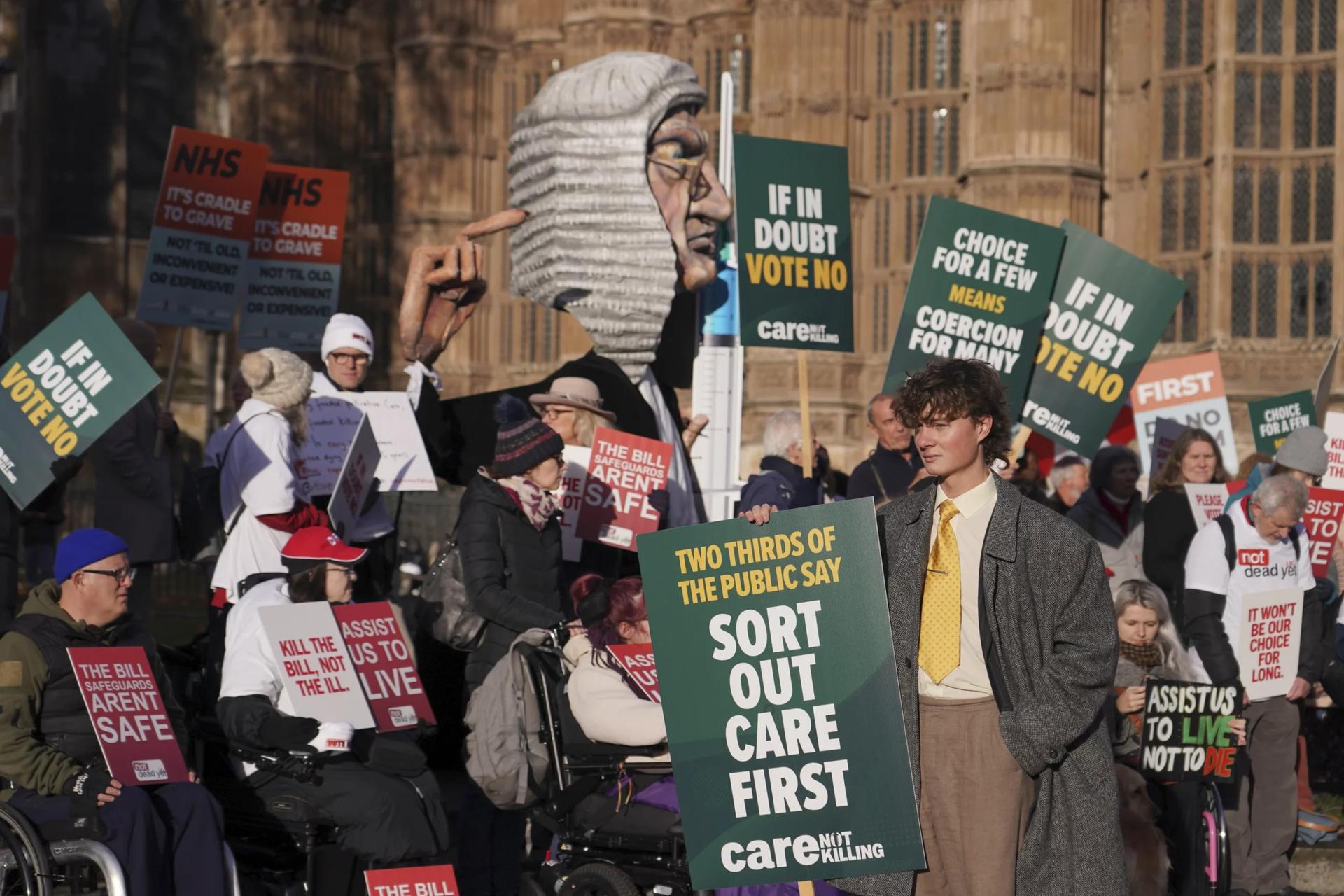LEICESTER, United Kingdom – After the British parliament voted in favor of a Bill to legalize assisted suicide, Bishop Patrick McKinney of Nottingham said it would be “a devastating law.”
On Friday, Labour MP Kim Leadbeater’s Terminally Ill Adults (End of Life) Bill was approved by the Parliament by a vote of 330 in favor to 275 against. Although new Prime Minister Keir Starmer has supported legalizing assisted suicide, he offered members of parliament a “free vote” on the issue, and members of all the major parties were split on the issue.
The Bill passing is only the first stage in the House of Commons, and it will be months before it can be passed into law.
“This marks a very bleak day in our country’s history,” McKinney said.
“Let’s be totally clear about the situation we now face; presuming this Bill will eventually become law, somebody as young as 18 years old, who is seriously sick and who is judged to have less than six months to live, will be eligible for an assisted suicide on the NHS,” the bishop said in a statement.
RELATED: British citizens ‘confused’ over definition of assisted suicide ahead of Parliament vote
“Based on the experience of other jurisdictions who have passed a similar law, I have no doubt that this is not merely about changing the law; we are about to witness a devastating shift in our culture and society. The fundamental principle that we do not involve ourselves in bringing about the deaths of others will be reserved for those who are strong and healthy, while people who are seriously ill and vulnerable will no longer be afforded such protection,” he added.
McKinney added given “the gravity of this bill,” he hopes and prays that there will be further opportunity during its passage for deep and critical reflection on the part of all of our society, “rather than this highly controversial proposal continuing to be rushed through.”
”In the meantime, I urge you to pray for the dying, pray for those who care for them, and pray especially for those people who may now be contemplating assisted suicide due to misplaced guilt or external coercion,” he said.
“May God protect them all, and may those who care for them – despite the prospect of such a devastating law – continue to offer the dying care and compassion and not a state-sanctioned lethal prescription,” the Nottingham bishop said.
Politicians endorsing the Bill claim it would have severe restrictions, limiting assisted suicide to those expected to die of illness within six months, and safeguards in place to protect patients.
Euthanasia and assisted suicide are currently illegal under English, Welsh, and Northern Irish law and is considered manslaughter or murder. In Scotland, there is no specific legislation, but people can be prosecuted for murder if they are involved.
Lord David Alton of Liverpool, a Catholic member of the House of Lords, said he would have supported a Bill based on care for the disabled, but opposed a Bill “which focuses on the taking of life – which will endanger the lives of vulnerable people and lead to the incrementalism to which similar laws have led elsewhere.”
RELATED: English bishop says Assisted Suicide Bill will lead to decline in palliative care
In a statement before the vote in the House of Commons, Alton said some of the Bill’s proposed “safeguards” are being called into question.
“One of Britain’s most eminent retired judges and former head of the High Court’s family division has slammed the assisted suicide Bill describing it as ‘defective’ and saying it is not the ‘proper function’ of a judge to rule on whether someone is eligible for assisted suicide,” he said.
“Senior medics have also pointed out the arbitrary and subjective nature of the Bill’s requirement that a patient have only six months left to live,” Alton added.
He noted research indicates that over half of patients expected to die within six months to a year outlive those expectations. Based on over 25,000 clinicians’ responses, the results showed that on 6,495 occasions when a doctor thought a patient would likely die at any point in the following 12 months, they were incorrect in more than 54 percent of cases.
Bishop John Sherrington, Lead Bishop for Life Issues for the Catholic Bishops’ Conference of England and Wales said the Catholic leaders are “disappointed” on the passage of the Bill.
“We believe that this Bill is flawed in principle and also contains particular clauses that are of concern. We ask the Catholic community to pray that members of parliament will have the wisdom to reject this Bill at a later stage in its progress,” he said.
“In addition to being opposed to the principle of assisted suicide, we are particularly concerned with clauses in the Bill that prevent doctors from properly exercising conscientious objection, provide inadequate protection to hospices and care homes that do not wish to participate in assisted suicide and allow doctors to initiate conversations about assisted suicide,” Sherrington said.
He said the bishops’ conference is asking voices be heard about these “serious concerns” in the next stages of the Bill.
“We have expressed the view, during this debate, that genuine compassion involves walking with those who need care, especially during sickness, disability and old age. The vocation to care is at the heart of the lives of so many people who look after their loved ones and is the sign of a truly compassionate society. It is essential that we nurture and renew the innate call that many people have to compassionately care for others,” the bishop said.
“It remains the case that improving the quality and availability of palliative care offers the best pathway to reducing suffering at the end of life. We will continue to advocate for this and support those who work tirelessly to care for the dying in our hospices, hospitals and care homes,” Sherrington said.
Follow Charles Collins on X: @CharlesinRome














